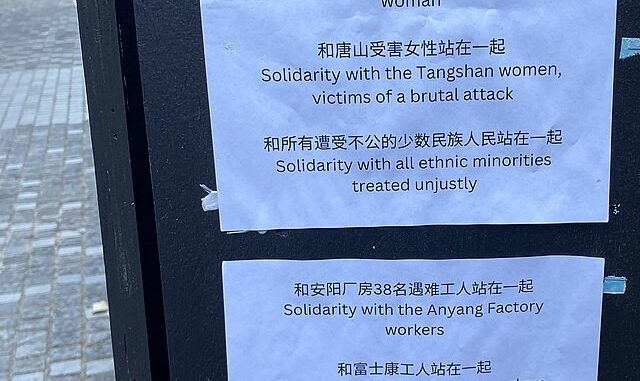
Emma Polen | News Editor
Jan. 19, 2023
China ended its nearly three-year-long “zero Covid” policy, and the resulting exponential outbreak of infections has made the world ponder the true intentions behind these restrictions
Back in January of 2020, the Chinese government promised that the forceful policies of isolation and self-quarantine were put in place for the good of the people.
While not everyone was a fan of the new policies, at the time it made sense. Keep the most vulnerable populations safe, and everyone would benefit.
Beginning in December of 2022, though, the major restrictions that kept Covid outbreaks in the heavily populated urban areas of China were lifted all at once, almost without warning. And with that, the Chinese people are left to wonder if the “good of the people” was ever the priority.
The reversal on restrictions came in December, soon after city protestors fought for an end to the complete lockdown-style policies that had kept the country isolated since 2020.
According to the Lancet, an international peer-reviewed medical journal, China reacted to the protestors with almost complete removal of their restrictive controls.
Lancet named the restrictions that were dropped, and many pose a problematic role in China’s safety and health.
“Travel in public was no longer restricted by electronic health passes and lockdowns were now highly focused and no longer required for whole municipal areas or cities and were relaxed after 5 days for new cases,” the journal stated.
The daily health pass that would allow healthy people to board the train on the way to work will no longer be enforced. Many people were never in support of this specific restriction, but its reversal will result in more people, even those with Covid who may just be asymptomatic, to board crowded transportation together.
“Additionally, from Jan. 8 onwards, people were able to travel internationally again.”
Now, not only will these lifted Covid restrictions affect China, but they could have repercussions around the globe, including in places ill-prepared for a pandemic. Sound familiar? Didn’t the entire pandemic begin because of a spread of cases from Chinese travelers who took to the air?
A return to a misstep from the very beginning of the pandemic – when this was all new and no one knew any better –further proves how hastily these regulation reversals seemed to come from Chinese leaders.
And, as one would expect, the sudden reversal of restrictions caused “rapid infection in many millions of Chinese people in December 2022,” Lancet said.
Not only were infection rates high, but Covid took its toll on those most vulnerable to major symptoms – the elderly.
Three years of restricted activity kept China safe from violent Covid outbreaks after the initial spread of the virus, but then it seemed as if no one in charge of reversing these restrictions checked the figures before making their decision.
Statistics from the Chinese National Health Commission shared that only 40% of citizens 80 years or older received the complete immunization to the virus. In China, full immunization required two vaccinations and at least one booster shot.
Even for those 40%, it is difficult to stay fully vaccinated while new variants continue to emerge.
With all this in mind, Chinese officials appear to be conflicted between the interests of the people and the interests of the party.
Do they want authority, or do they want another deadly Covid outbreak nationwide?
In my view, they could have had both by slowly easing back into “normal” life while keeping some key restrictions in place. For example, NPR found that Chinese state-sponsored vaccination pop-up booths had been taken down as soon as restriction orders were made.
The pop-up clinics could have stayed in place to ensure anyone with symptoms had a convenient location to check for Covid before continuing with their regular day-to-day activities.
In addition, the government could have advocated more seriously to have vaccinations available for those most vulnerable to hospitalization.
Currently, the homepage for the National Health Commission of the People’s Republic of China includes an ad for students to get another vaccination shot. Instead, the ad could encourage people – student-age or older – to get their elderly family members to the nearest clinic for a booster shot.

